#islamic golden age
Text
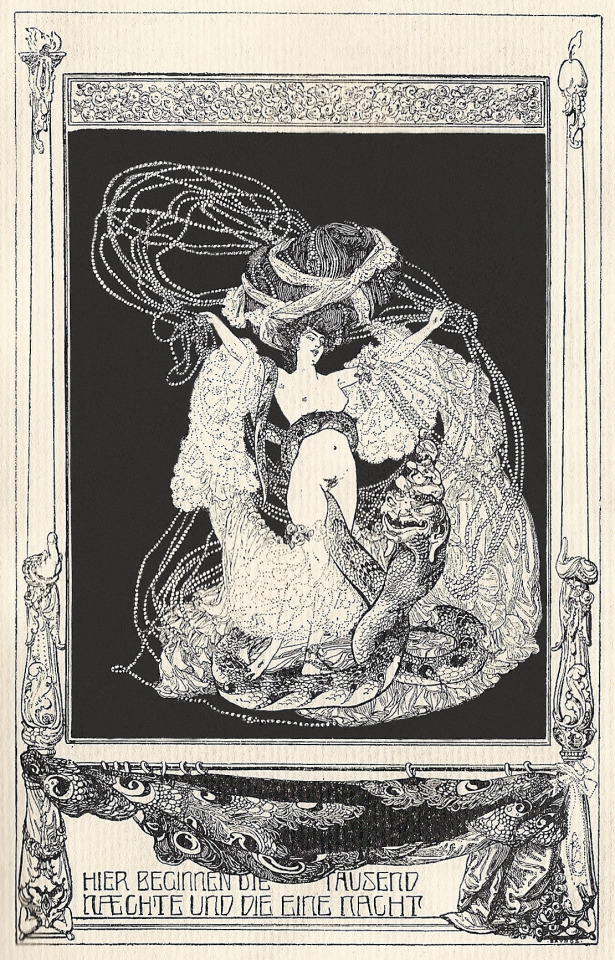
Franz von Bayros (1886-1924), ''Das Buch der Tausend Nächte und der einen Nacht'' (The Book of the Thousand Nights and a Night), Bd. 1, 1906.
Source
#franz von bayros#austrian artists#Islamic Golden Age#art nouveau#One Thousand and One Nights#vintage illustration#vintage art
370 notes
·
View notes
Text
You’re islamophobic because you’re ignorant
I’m islamophobic because they made significant advances in mathematics and math makes my head go ouch
We are not the same
#196#196 campfire#shitpost#I’m stupid#mathematics#islam#islamic golden age#I’ll never forgive the abbasids#rule#ruleposting
157 notes
·
View notes
Text

The Hijab did not originate from Islam nor are they oppressive when women have the freedom to choose when they wear one.
🧕🏼☪️🧕🏾
#history#hijab#islam#mesopotamia#veil#middle eastern history#ancient#medieval#islamic golden age#clothing#womens history#fashion#femininity#traditional clothing#muslim women#islamic practice#religion#middle east#soft girl#hijab fashion#islamic history#assyrian#traditional femininity#sumerian#womenswear#fashion history#nickys facts
33 notes
·
View notes
Text
by Eunice G. Pollack and Stephen H. Norwood
Many Arabs stressed that even before "Zionist ... pretensions" threatened the "happy relationship" between Muslims and Jews, it had been disrupted by the imposition of European colonial rule.[13] They informed their Western audiences that Jews had "enjoyed all the privileges and rights of citizenship" before colonialism introduced an "artificial separation" between Muslim and Jew. A Moroccan political leader insisted that for this reason the Jews had "welcomed" the overthrow of colonial rule and the return of "Arabization" and the establishment of the independent Muslim nation.[14]
Contrary to the Arabs' contentions, however, it was the colonial powers that had extended citizenship (e.g., Algeria in 1870), equality or near-equality (e.g., the French Protectorate in Morocco, 1912–1956) to the Jews, liberating them at last from their status as subjugated, humiliated dhimmis, and ending the oppressive jizya, the tribute always exacted by the Muslims. Thus Jews had strongly endorsed the colonial presence, generally embracing modern European education and culture.[15] It was under British occupation (1882–1922) that Jews in Egypt felt safest. Notably, under Islamic rule, it was only the Ottoman Empire that, in an effort to secure European support—and modern weapons—issued an Imperial Edict (1856) that, in theory, extended equal rights to all its subjects. In practice, however, Ottoman governors (pashas) confined themselves to collecting taxes, while local rulers and the populace—for example, the Mamluks in Egypt—continued to persecute, pillage, and impose additional "heavy levies" on the Jews. Thus most Jews not only supported European colonial rule, but feared the independence movements, with the threat of return to their earlier subordinate "social, political and economic" positions.[16]
Islamic Myths about Jews' Inherent Traits
Arab commentators readily dismissed over two centuries of travelers' accounts and investigative reports that belied their claims about the conditions and contentment of Jews under Islamic rule. They simply turned to another hoary myth in order to protect their current fable. The Arabs discarded all the testimony that contradicted their narrative, explaining that it had been derived largely from Jews, whom the Qur'an characterized as congenitally deceitful, never to be trusted.[17]
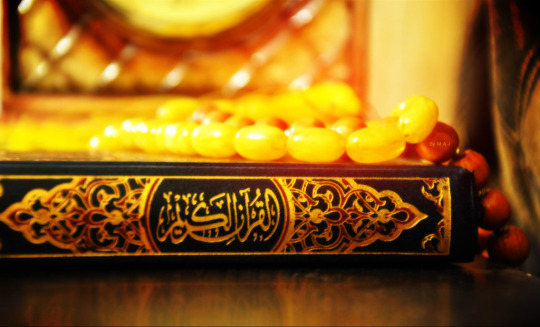
At times, political and religious leaders conceded that the Jews in Muslim lands had been relentlessly subjugated, relying on another large cache of myths, drawn or extrapolated from the Qur'an, to sanctify their abasement of those they now identified as "the dogs of humanity." Indeed, from the earliest years of Islam, Muslims had understood that "their deadliest enemies were the Jews."[19] They were the only people cursed in the Qur'an, whom Allah had promised "degradation in this world and a mighty chastisement in the next world." Muslim theologians recognized that the Jews were "like germs of a malignant disease where one germ is sufficient to eliminate an entire nation." But, they taught, "the Holy Qur'an ... constitutes the microscope through which we can see the pests and poisons that reside in their minds and hearts." Thanks to Qur'anic lessons on how to subdue the Jews, the Muslims were "the only people on earth to tolerate them" in their midst.[20]
Citing the Qur'an, prominent Muslim educators portrayed the Jews as driven throughout their history to bring "blind sedition ... and intrigue in any land or community where they happened to live." Some suggested that this was likely "why the Israelites ... were so detested by all surrounding tribes."[21] Others explained that "the Jews themselves have not changed" because, "according to ... their false Torah," they "are required to stir war with their neighbors once they have the opportunity to do so." Some added that the Jews often preferred to deploy "conspiracies, plots, intrigues [and] sedition" because they were inherently "cowards and could not openly face their enemy."[22]
Not acknowledging a contradiction, many spokesmen insisted that "the Jews have always been criminal aggressors." Jews claim that they are victims, "subjected [throughout] their long history" to "oppression and persecution" "for no other reason than their being followers of Moses." In truth, "the hatred felt by various peoples ... for Jews was not due to their belief, but their ... unchangeable behavior, always based on exploitation, ingratitude and evil-doing in return for kindness." That is, the "criminal aggressors" only deceptively identify as innocent victims.[23] Educators taught that the Jews are "avaricious, ruthless, cruel, hypocritical and revengeful. These traits govern their lives." They point out that the Qur'an warned that, if permitted, the Jews would "become great tyrants." They conclude: "No good is expected of them unless they live under the aegis of Islam as loyal and obedient subjects." Then the Muslims "will treat them ... tolerantly." "Islamic tolerance is," after all, in complete contrast to "Jewish intolerance and cruelty."[24]
13 notes
·
View notes
Text
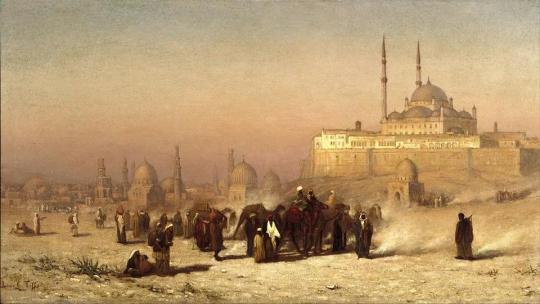
Me omw to Timbuktu to become a learned scholar
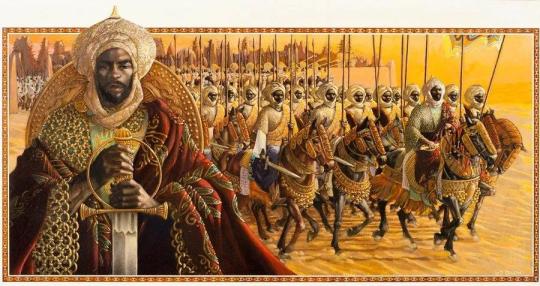
Goin on Hajj, might disrupt some local economies with gold

ALCHEMY TIME 💯💯
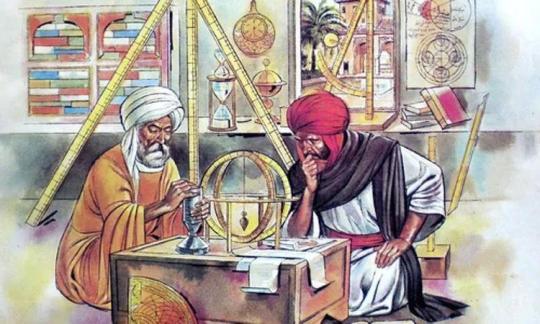
STUDYING MATHEMATICS 🗣️🗣️
44 notes
·
View notes
Text
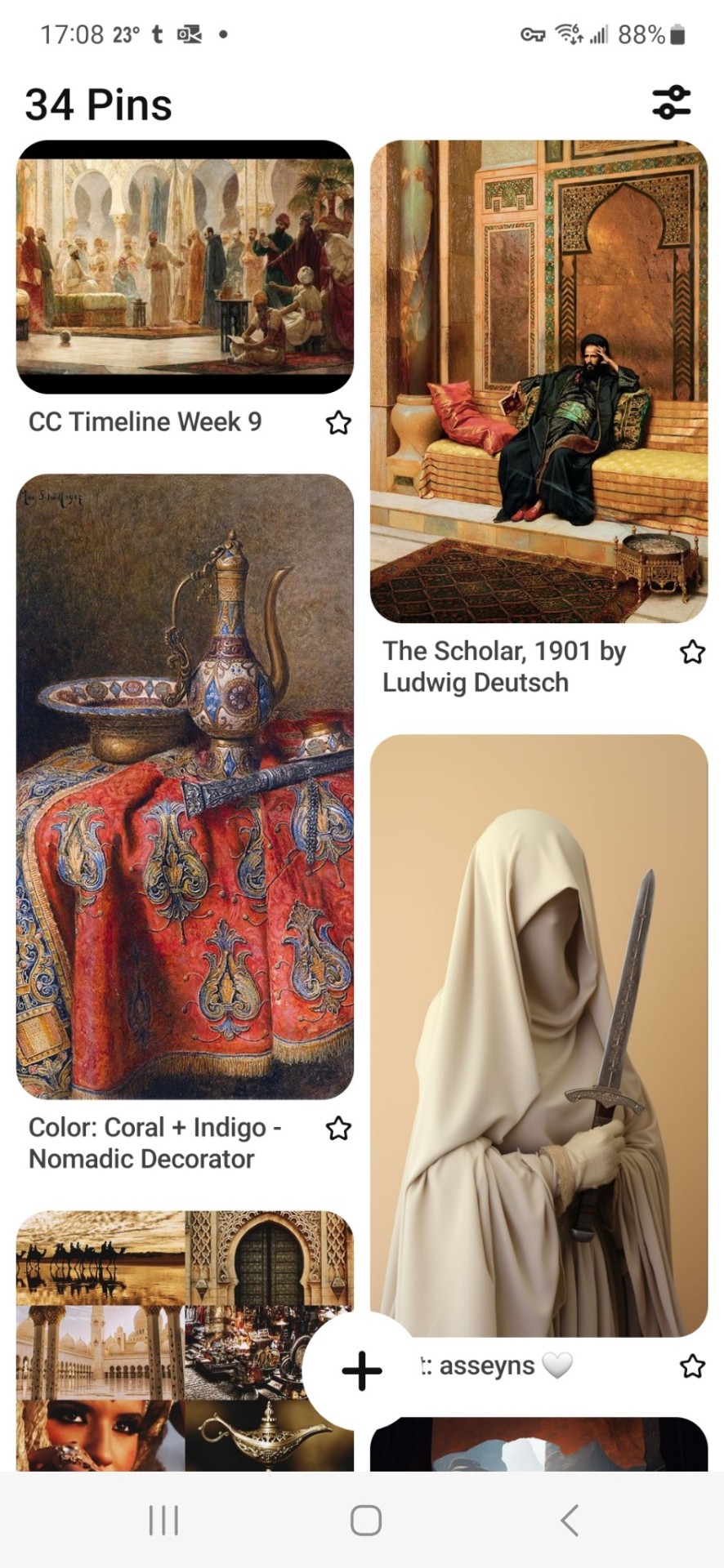
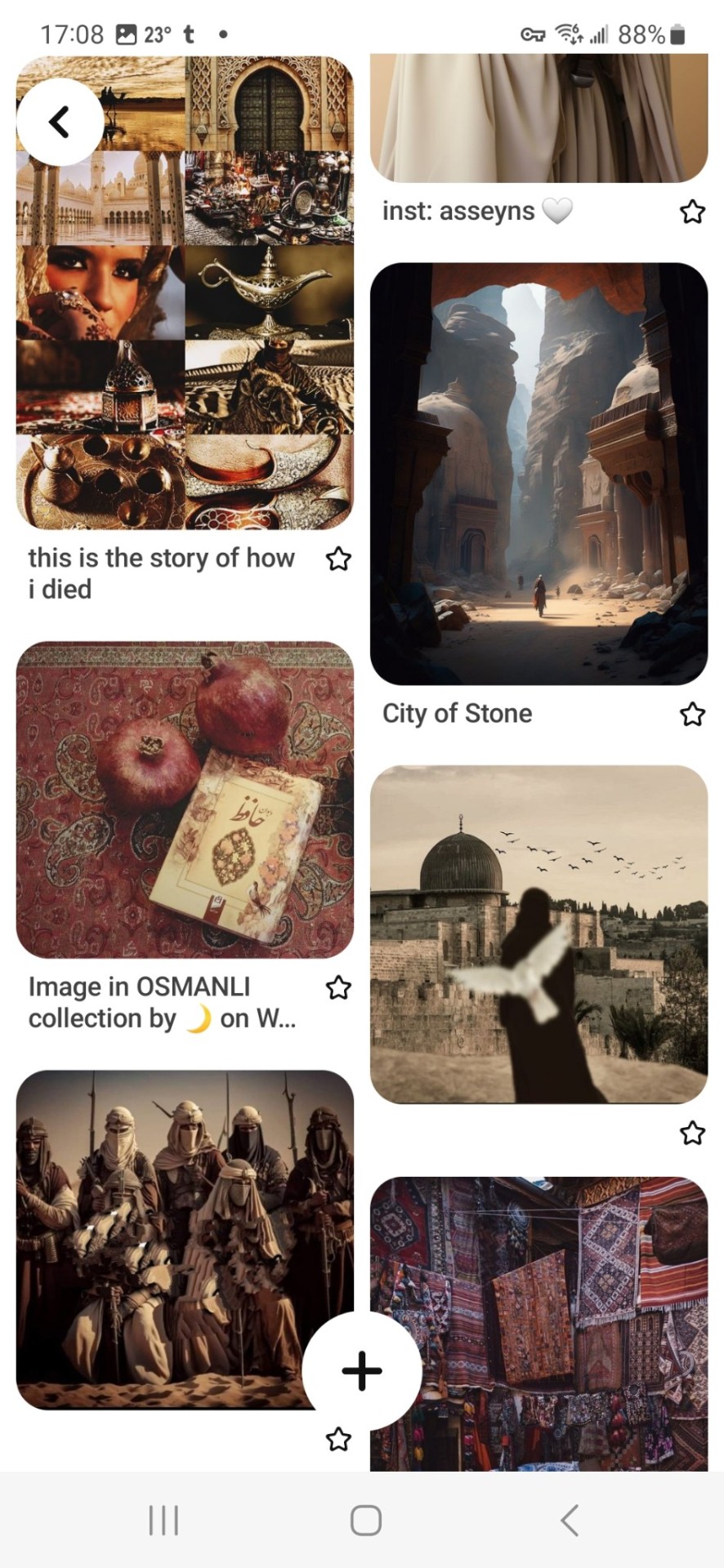
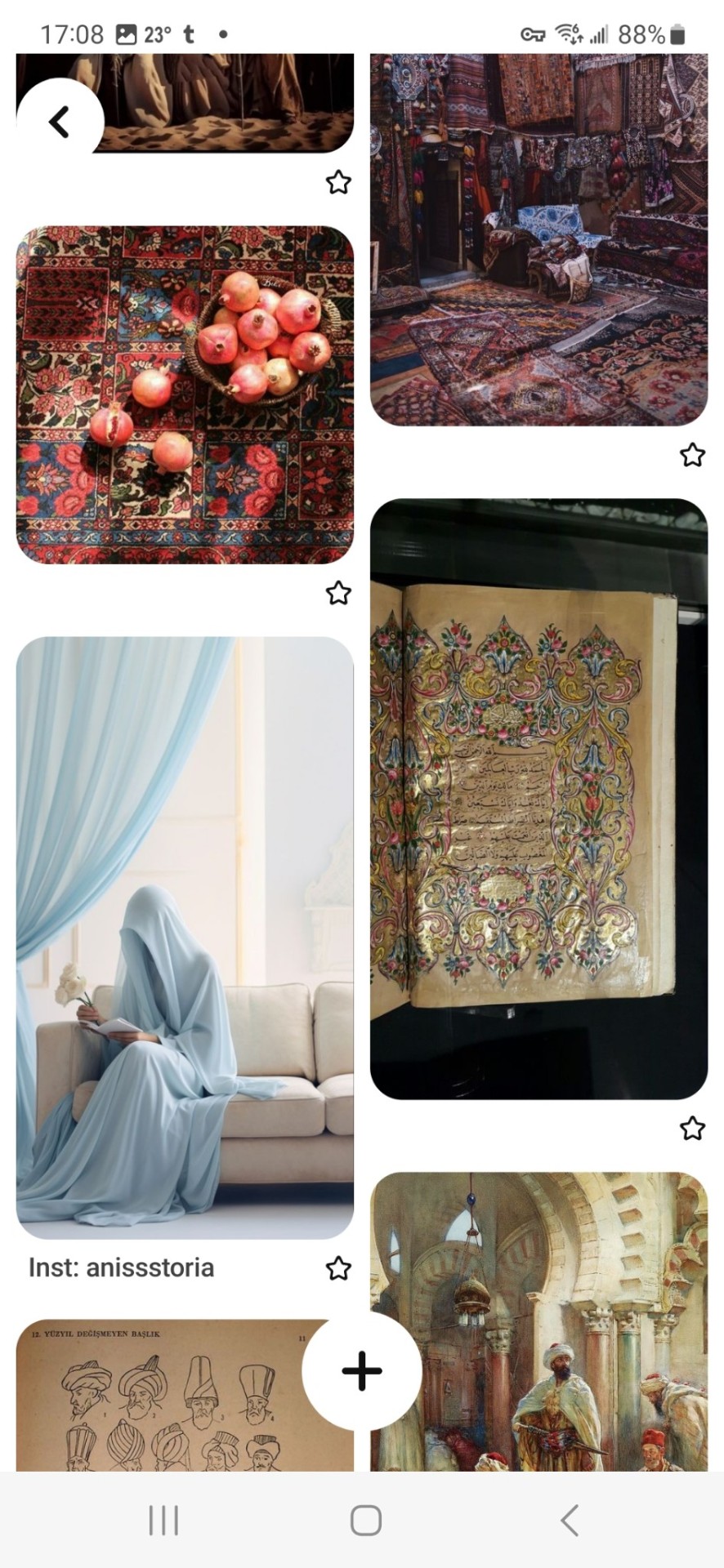
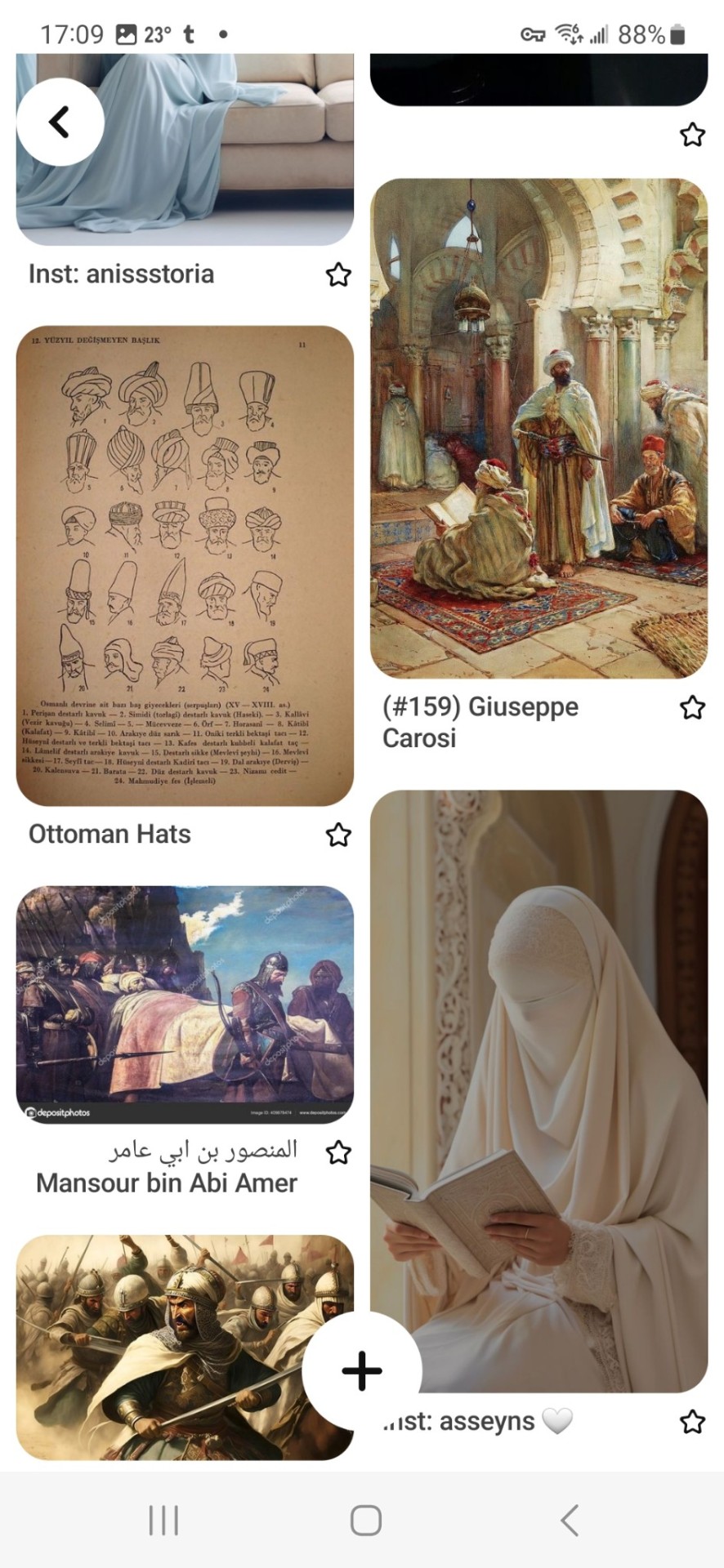

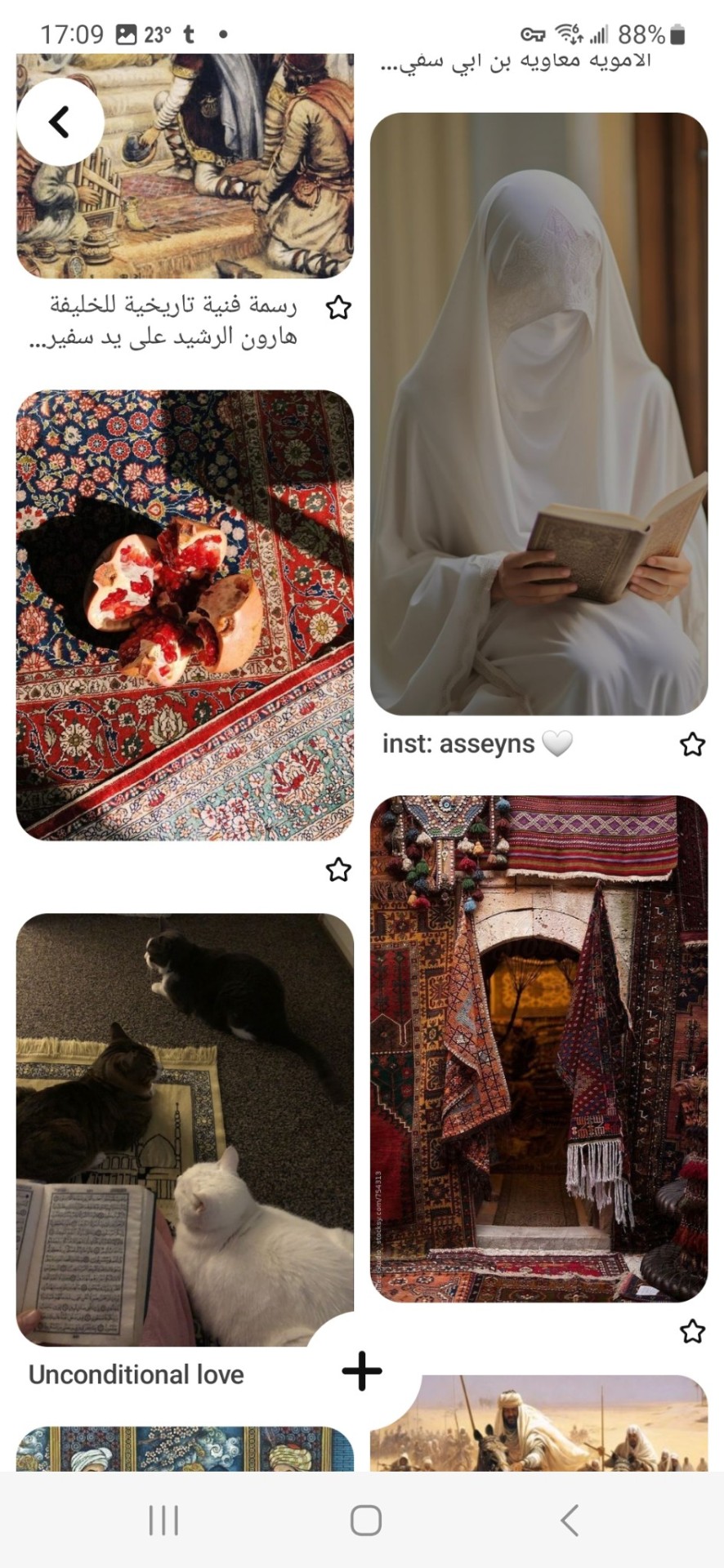

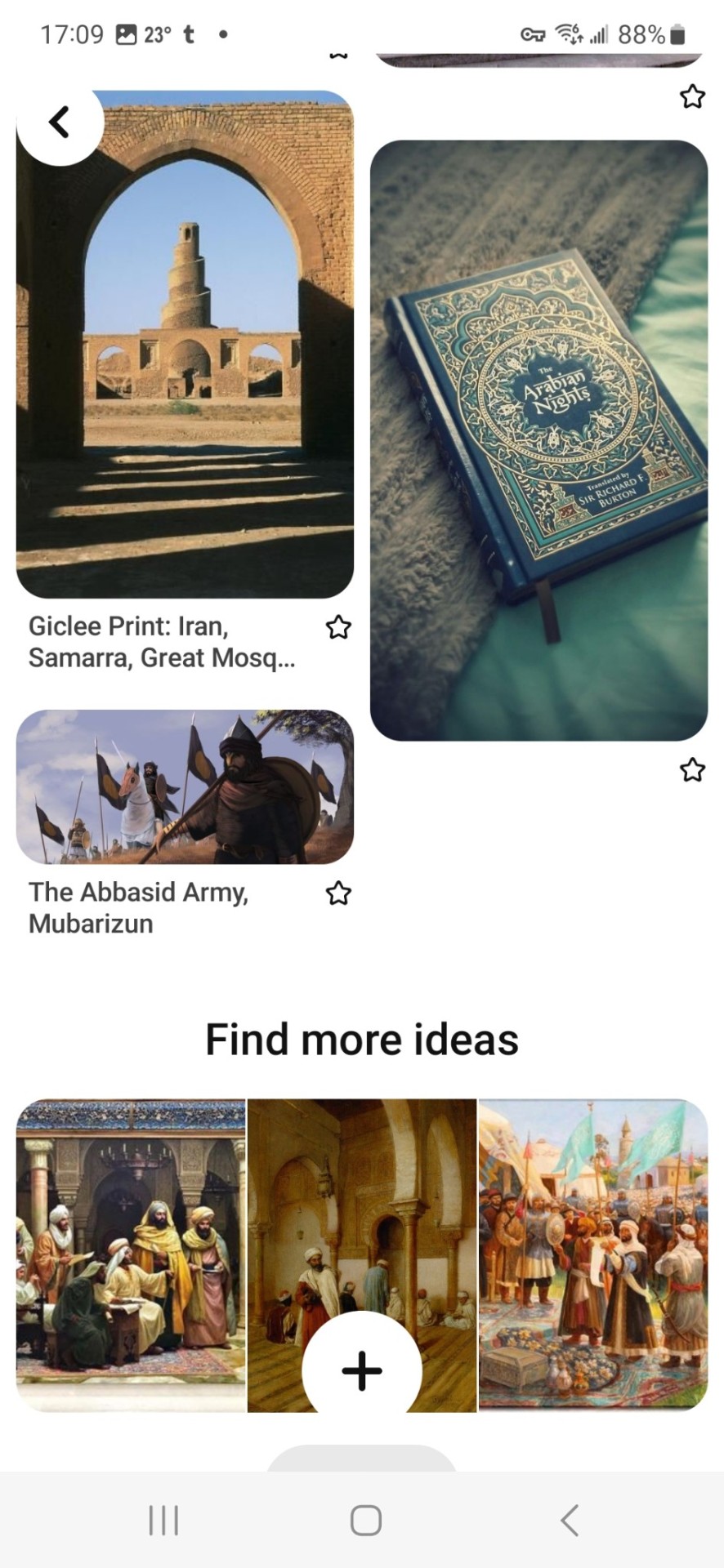
A moodboard I did of Disney's Scheherazade ideas
🤩🤩🤩🥺🥺
#abbasid caliphate#islamic golden age#disney Scheherazade ideas#like i just think that'll be a cool disney aladdin prequel#since jasmine is a descendant of Scheherazade in disney#scheherazade#shahryar#harun al rashid#zubaidah bint jafar#1001 nights#persia#iran
5 notes
·
View notes
Text
On This Day In History
August 27th, 865: Abu Bakr al-Razi, one of the most important figures of medical history, is born.
A Persian polymath and proponent of experimental medicine, he is known for studying and treating smallpox, as the father of pediatrics, and a pioneer of obstetrics and ophthalmology. He is the first known human to recognize the reaction of the eye's pupil to light. He wrote extensively on many medical topics, including medical ethics, and his works were massively influential in medical education across Europe.
#history#world history#persian history#Abu Bakr al-Razi#medical history#Razi#al-Razi#Rhazes#Islamic Golden Age
107 notes
·
View notes
Text
Al-Rhazi and Ibn Sina kept alive and advanced much medical knowledge that had largely vanished from Europe – knowledge that had originated in Ancient Greece and Rome, and then spread through Constantinople and Gundeshapur to Baghdad and Bukhara, where it was combined with learnings from India and China, and was eventually translated back into European languages to form a basis for the flowering of the Renaissance. This reawakening of Classical thought inaugurated the age of the university, when medical schools were established throughout Europe, the Middle East, and beyond.
— Kill or Cure: An Illustrated History of Medicine (Steve Parker)
#book quotes#steve parker#kill or cure: an illustrated history of medicine#history#classics#medicine#medical history#academia#education#islamic golden age#enlightenment#renaissance#persia#iran#ancient greece#ancient rome#abu bakr al-razi#ibn sina#avicenna
17 notes
·
View notes
Text
The House of Wisdom
I know people get annoyed about the destruction of the Library of Alexandria, but I think they should also be upset about what the Mongols did to the House of Wisdom.
Founded in the late 8th century, also known as the Islamic Golden Age, the House of Wisdom was a public library, observatory and academy located in what is now Baghdad, Iraq. There were rare books and Arabic poems, and plenty of translations of texts from Arabic, Syriac, Chinese, Sanskrit and Greek. Research was conducted and scholars had access to information from India, Greece and Persia. Scholars could study astronomy, maths, medicine, science and philosophy. Some of the astronomers worked on improving the astrolabe, which was used by Muslims to find Mecca and could also help travellers plan their journeys.
The House of Wisdom was in Baghdad, which at the time was the capital of the Abbasid Caliphate. This meant that plenty of people, including scholars, would visit the city. Some notable examples are al-Jahiz (who lived to be 89, and apparently died when a stack of books fell on him); al-Kindi (the father of Arab philosophy) and al-Ghazali (a Mujaddid who wrote "The Incoherence of Philosphers"). al-Jahiz taught at the university and wrote there. In one of his books he discusses evolution and argued that dogs, wolves, foxes etc probably shared a common ancestor with four legs and a tail. One scholar, al-Ma-mun, put together the most detailed map of the Earth (for its time - it looks like North Africa, Europe and parts of Asia to me. https://www.pinterest.co.uk/pin/486177722268804983/ ).
The Mongols destroyed the House of Wisdom in 1258 when they sieged the city. Hulegn, the grandson of Ghengis Khan, attacked the city and destroyed hospitals, mosques and libraries. The attackers threw all of the books into the Tigris river. Legend says that for days afterwards the river water was turned black with ink and red with blood.
#the house of wisdom#the library of alexandria#baghdad#iraq#islamic golden age#mongol invasion#ghengis khan#hulegn#al-jahiz#al-kindi#al-ghazali#islamic scholars#muslim scholars#history
3 notes
·
View notes
Link
Avicenna’s Canon brilliantly synthesises Islamic medicine with that of Hippocrates (460 – 370 BC) and Galen (129 – 200 AD). There are also elements of ancient Persian, Mesopotamian and Indian medicine. This was supplemented by Avicenna’s extensive medical experiences.
In the Canon, Avicenna introduced diagnoses and treatments for illnesses unknown to the Greeks, being the first doctor to describe meningitis. He made new arguments for the use of anaesthetics, analgesics, and anti-inflammatory substances.
Looking forward to modern notions of disease prevention, Avicenna proposed adjustments in diet and physical exercise could heal or prevent illnesses.
Avicenna was also vital to the development of cardiology, pulsology, and our understanding of cardiovascular diseases.
Avicenna’s detailed descriptions of capillary flow and arterial and ventricular contractions in the cardiovascular system (the blood and circulatory system) assisted the Arab-Syrian polymath Ibn al Nafis (1213-1288), who became the first physician to describe the blood’s pulmonary circulation, the movement of blood from the heart to the lungs and back again to the heart.
This happened in 1242, centuries before scientist William Harvey arrived at the same conclusion in 17th century England.
26 notes
·
View notes
Text
The greatest medical minds of all time would not have been able to accomplish
great feats without the support of great institutions. The Muslim world of the Golden Ages, with its vast financial resources and strong political institutions, established some of the first hospitals in history. The impetus to build hospitals came from the need to care for the health of poorer citizens. The wealthy were
able to hire private physicians and pay for home treatment, but the poor had no such luxury. To provide for them, caliphs and emirs established large institutions
in the great cities of the Muslim world aimed at providing affordable or free healthcare to anyone who would need it.
In the early ninth century, the first hospitals began to appear in Baghdad. As the hospitals grew over time, they
began to resemble modern hospitals in size and scope. Hospitals had dozens of
doctors and nurses, including specialists and surgeons. They contained outpatient
centers, psychiatric wards, surgery centers and maternity wards. Perhaps the biggest difference was that the hospitals of that era were free to those who
could not afford it; a far cry from the revenue-fueled hospitals of today. To the patrons of these hospitals, the Prophetic example of compassion was clear. In their eyes, a society based on Islam was expected to care for all its citizens, regardless of wealth, race or even religion.
After first being established in Baghdad, these enlightened institutions of healing spread to the rest of the
Muslim world’s major cities throughout the tenth to fourteenth centuries. Hospitals could be found in Cairo, Damascus, Baghdad, Mecca, Medina, and even distant Granada in Iberia. The Ottomans would later carry on this tradition of
public hospitals, and it was during their long reign that Europe would begin to
catch up, and even surpass, the Muslim world.
The Renaissance saw a move to translate hundreds of Arabic texts into Latin in
the great cultural and scientific centers such as Padua and Bologna. Europeans were able to further advance the knowledge of giants such as al-Razi and Ibn
Sina, who advanced the knowledge of Galen and Hippocrates. Today’s medical knowledge and institutions come largely from the West, but are based on the
earlier Muslim medical tradition, which in turn was based on ancient Greece. The clash of civilizations narrative that is promoted by extremists on both sides of
modern conflicts neglects examples of cross-cultural intellectual traditions such as this.
Source:
Lost Islamic History, Firas AlKhateeb, pp. 89,90
#medical#science#hospital#islam#islamic golden age#Renaissance#europe#arabic#caliphs#caliphate#baghdad#medieval history
24 notes
·
View notes
Text
wishing everyone Eid ul Adha to you and your family..May Allah SWT accept our Efforts we took towards Allah SWT
#dhul hijjah#hanif abdurraqib#mosques#islamic golden age#muslimquotes#muslim community#revert#bukhara#quranandsunnah#islamic architecture
4 notes
·
View notes
Text

The Dome of the Rock is one of the most beautiful and historically important landmarks in Palestine!
🇵🇸💛🇵🇸
🇵🇸💙🇵🇸
#history#al aqsa#dome of the rock#jerusalem#palestine#architectural history#middle east#islam#landmarks#medieval#palestinian history#abrahamic religions#Islamic golden age#prophet muhammad#islamic history#free palestine#wonders of the world#medieval history#architecture#holy sites#historical landmarks#nickys facts
28 notes
·
View notes
Text
*I worship you Tumblr don’t remove it
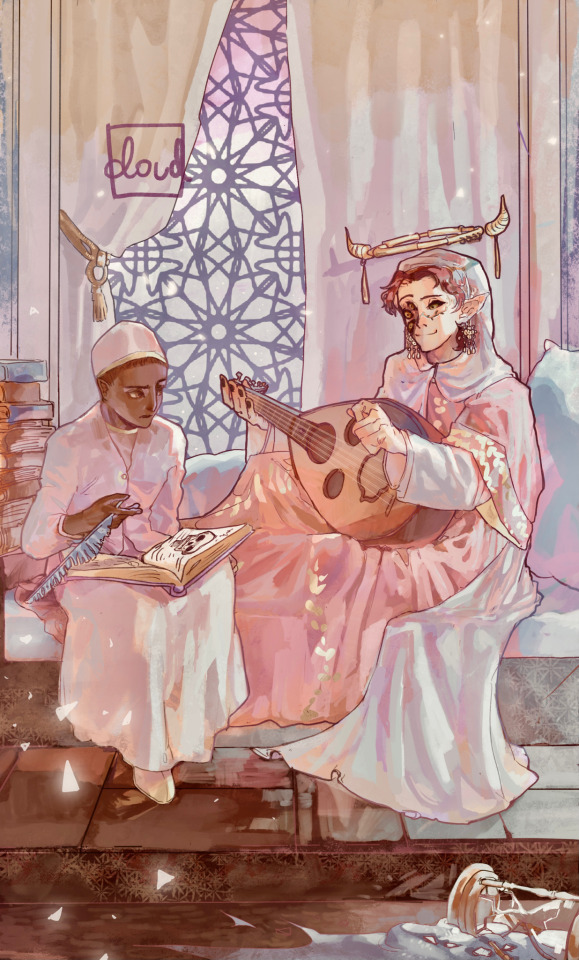
This is the last one, I’m finally free!ヽ(;▽;)ノ
#the commissioner was like: I give you one character and you can do whatever you want#i I was like#Islamic Golden Age#because it's awesome#anyway#I'm freeeeeeeeeeeeee#SquareCloud#not fanart
23 notes
·
View notes
Video
youtube
Ibn Sina's cosmological argument changed #theology and #philosophy forever. Few thinkers since have been as creative and ahead of their time than the #persian polymath and physician.
#stoic#islam#islamic philosophy#theology#god#religion#ibn sina#persian history#islamic golden age#science#middle east#aristotle#plato#school of life
6 notes
·
View notes
Text

Cassia in the Eastern Empire. I wanted to do more fantasy based on elements and principles from the Islamic Empire, particularly the golden age. So here is an OC in a kaftan-inspired dress.
2 notes
·
View notes